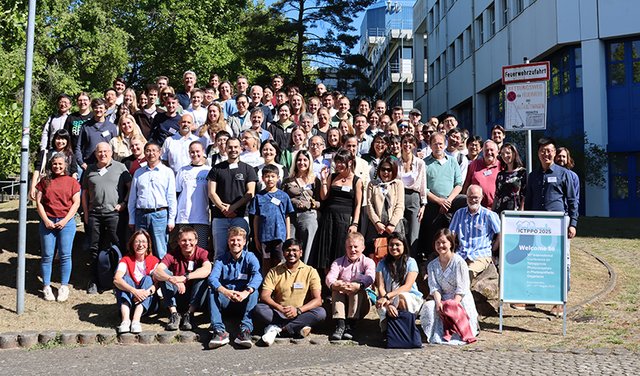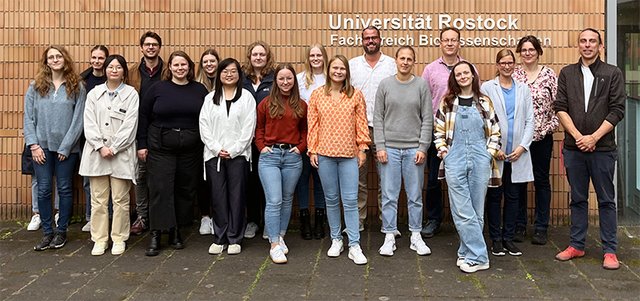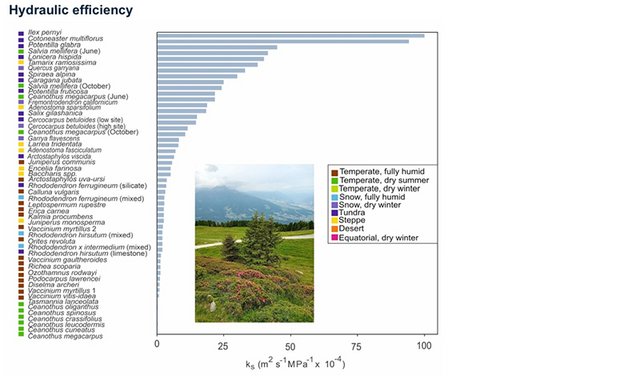International Symposium on Cereal Meristems and Stem Cell Systems
28 September - 1 October 2025
Regensburg, Germany
Applicant: Prof. Dr. Thomas Dresselhaus
also see congress poster with invited speakers and organizing committee (pdf)
Website: https://www.cscs2025.de
13th International Plant Sulphur Workshop
Heidelberg, Germany
21 - 25 September 2025
Applicant: Prof. Dr. Rüdiger Hell
Website: https://conferencecentral.org/40
read conference report incl. image in our Actualia
Symposium of the International Society of Endocytobiology 2025 (ISE-G 2025)
Berlin, Freie Universität Berlin, Germany
16 – 19 September 2025
Applicant: Prof. Dr. Margarete Baier
also see: Invitation Poster (pdf)
read conference report incl. image in our Actualia
The Numbers Matter: Exploring Photoautotrophic Organisms through Quantitative Biology (Summer School)
Rostock, Germany
15 - 19 September 2025
Applicant: Prof. Dr. Andreas Richter
read conference report incl. image in our Actualia
Hildesheim, Germany
1 - 3 September 2025
Antragstellend: Prof. Dr. Dietrich Ober
read conference report incl. images in our Actualia
Frontiers in Plant Systematics and Evolution
Symposium of our Section Biodiversity and Evolutionary Biology
27 - 30 August 2025
Centre for Organismal Studies at Heidelberg University, Germany
27 to 30 August 2025
Applicant: Prof. Dr. Elvira Hörandl
read conference report in our Actualia
21st International Conference on the Cell and Molecular Biology of Chlamydomonas
Münster, Germany
24 - 29 August 2025
Applicant: Prof. Dr. Michael Schroda
read conference report incl. image in our Actualia
16th International Conference on Tetrapyrrole Photoreceptors of Photosynthetic Organisms (ICTPPO)
Rheinland-Pfälzische Technische Universität Kaiserslautern-Landau (RPTU), Kaiserslautern, Germany
24 - 27 August 2025
Applicant: Prof. Dr. Nicole Frankenberg-Dinkel
read conference report incl. image in our Actualia
International Symposium "Evolution of Plant Reproduction"
Berlin, Germany
25 - 28 March 2025
Applicant: Prof. Dr. Annette Becker
read conference report incl. several images in our Actualia
Tagungshaus "Alte Mensa" in Göttingen, Germany
25 - 28 March 2025
Applicant: Dr. Maike Lorenz
read conference report incl. several images in our Actualia
23. Mitteldeutsche Pflanzenphysiologie-Tagung
Leucorea, Halle-Wittenberg
14 - 15 Februar 2025
Antragstellend: Prof. Dr. Ralf Bernd Klösgen
read conference report in our Actualia
38th Molecular Biology of Plants
of our Section Plant Physiology and Molecular Biology
Sportschule Hennef, Germany
10 - 13 February 2025
Applicant: Prof. Dr. Christopher Grefen
read conference report in our Actualia
Plant Proteolysis: Integration and Regulation of Plant Proteolytic Pathways (Gordon Research Conference)
Gordon Research Conference
Lucca (Barga), Lucca, Italy
19 - 24 January 2025
Applicant: Prof. Dr. Andreas Schaller
read conference report in our Actualia























































